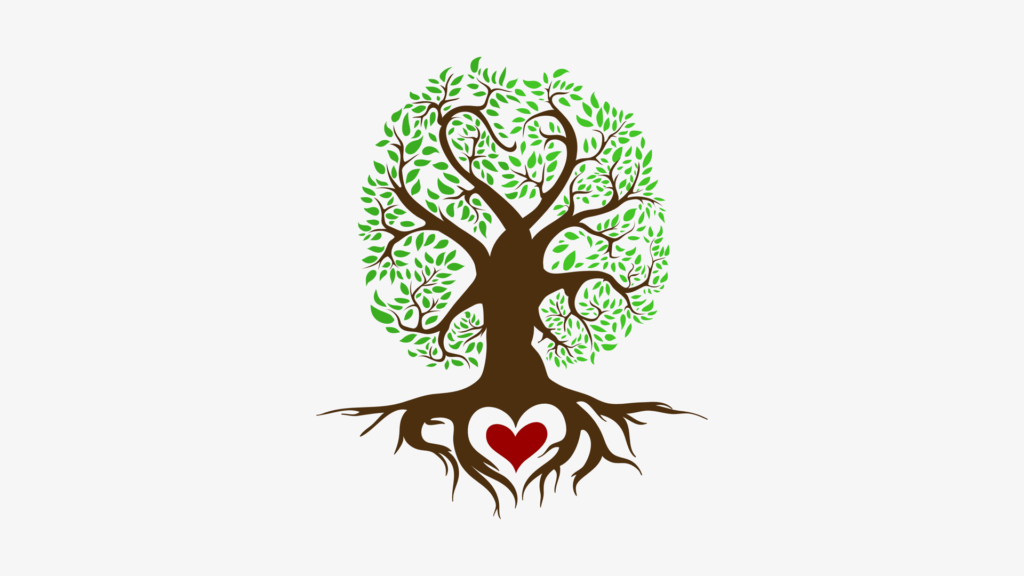Empathy, Reciprocity, and Peace: Engaging the Core Values of Pluralism

by Brian Grim
Love remains at the root of creating a flourishing society
How do we all live together in a world of such different religious beliefs and spiritual paths? How can the diversity we see everywhere — in the workplace, in our online interactions, in sports and entertainment, in our neighborhoods — translate into empathy and reciprocity instead of suspicion and resentment? The core of that civic ideal looks something like this.
A young mother was diagnosed with terminal cancer at an advanced stage. Her family prayed for healing, as many families would do. Her father, however, prayed a different prayer. He came back to the family and said he knew she would be fine.
Some weeks later the cancer was gone. Completely gone. A miracle. His wife asked him how he was so sure that she would be cured. He said that he’d prayed that the cancer would come to him instead and spare their daughter. That same year, cancer claimed his life.
Such love is the beginning point for a working pluralism. Not that I can say that I would have prayed that same prayer, but a love that lays one’s life down for others is the touchstone for all values.
In my faith tradition, a scripture passage quoting Jesus captures this: “This is my commandment, that you love one another as I have loved you. No one has greater love than this, to lay down one’s life for one’s friends.” (John 15:12-13)
The call of love is even more challenging. In Jesus’ famous Sermon on the Mount, he said, “You have heard that it was said, ‘You shall love your neighbor and hate your enemy.’ But I say to you, Love your enemies and pray for those who persecute you … For if you love those who love you, what reward do you have?” (Matthew 5:43-44, 46a)
Such love is the foundation for a society of mutual respect and dignity. From that flows three core values.
First, begin with your neighbors’ religious freedom, not your own.
In a book I co-authored called The Price of Freedom Denied: Religious Persecution and Violence in the 21st Century (Cambridge University Press 2011), we noted that an important indication of religious freedom in any given country is when people consider that religious freedom for others is as important as religious freedom for themselves.
In analyzing international data from the Pew Research Center, there was an average 14-point “religious intolerance gap” across the countries between the number of people who consider freedom for “their own religion” very important and the number who consider freedom for “religions other than their own” very important. That is the space where religious freedom withers.
From my own faith perspective, this makes sense. The two greatest commandments are to fully love God and to love your neighbor as yourself (Mark 12:30-31). And when a cheeky lawyer challenged Jesus about who is our neighbor, Jesus replied with the parable of the Good Samaritan (Luke 10:25-37). It’s the story of foreigner with a foreign religion showing love and mercy to a gravely injured stranger who was stripped and left to die in the middle of a road as his religious compatriots passed him by.
Put another way, helping people of other faiths and beliefs enjoy full religious freedom is the road to religious freedom for oneself as well. Peace is a two-way street.
Second, judge not lest we be judged.
The religious intolerance gap mentioned above is not the only threat to religious freedom — so is the religious hypocrisy gap. Any successful program of religious freedom must bridge this gap by first, as Jesus said, “Take the log out of your own eye, and then you will see clearly to take the speck out of your neighbor’s eye.” (Matthew 7:5)
In a recent talk by Sue Warnke at the 2021 National Faith@Work Conference, she shared how business students at a major secular California university were immediately drawn into a positive discussion of workplace religious freedom when she began by acknowledging the harm religion has done in some people’s lives.
In other words, defending religious freedom is not the same thing as defending religion.
Third, make peace as first recourse rather than the law.
“Blessed are the meek … the merciful … the peacemakers” are part of the Beatitudes that kick off the Sermon on the Mount. These qualities provide humble and powerful approaches to advancing religious freedom.
Freedom of religion or belief is primarily seen as a legal issue, and indeed I work with many lawyers in this professional field. However, when litigation replaces discussion and the core values espoused in this article, it’s often too late for religious freedom to become a matter of shared consensus. (See Matthew 5:25-26)
One way I have put energy into this approach is to reach out and discuss with people in the LGBTQ+ community ways in which religious freedom brings benefit to them. This is perhaps the most sensitive area today, which makes discussion all the more important.
I am not alone in this. Top companies across America ranging from Salesforce to Texas Instruments have found that positive interactions are the norm between their Pride employee resource groups (ERGs) and their faith ERGs. For example, at a Salesforce Faithforce event called Multiple Closets, Jewish, Muslim and Christian persons who were also LGBTQ+ shared their personal stories of ‘coming out of both closets’ – both as LGBTQ+ and people of faith. And they simply shared their stories.
Faith-friendly corporations are more appealing from a recruitment and retention standpoint. They increase morale, reduce religious bias, and foster greater collaboration, creativity, productivity, commitment and innovation.
When we focus on loving our neighbor without judging and on working for peace through meaningful personal discussions, there is much hope for our fragmented society.
*****
Brian Grim is President of the Religious Freedom & Business Foundation
[This essay is part of a series called Positive Faith in Public Life]



